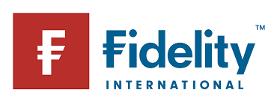
3 minute read
Keeping all your investments together under one roof
from SKQ Issue 5
by SKFinancial
By Alexander Iveson, Senior Sales Manager
Over recent years, technology has had a profound effect on us all. We’ve grown used to managing our lives through our smartphones, for example, and the way we work today has been revolutionised by the internet. Saving and investment has changed considerably too, with technology facilitating the emergence of investment platforms. But what exactly is a platform? We put our questions to Alex Iveson at Fidelity FundsNetwork, which is one of the UK’s leading platforms.
Advertisement
What is an investment platform? A platform is essentially a ‘one-stop-shop’ for investors. They allow you to invest with a range of fund companies all in one place – you no longer have to deal with numerous different companies. They typically offer lots of choice too – Fidelity FundsNetwork, for example, offers over 5,000 investment options from all the leading companies. We also provide a range of tax wrappers, such as ISAs and a pension.
Are there any other advantages of having all of one’s assets on a single platform? Having everything together means it’s much easier to track your investments. Many platforms, for instance, give you access to your account 24 hours a day, 365 days a year, through a secure website. You can see an instant valuation of your accounts and investments, check regular payments and even analyse your portfolio. You also receive consolidated documentation meaning you’re not inundated with paperwork.
What are the risks of investing with just one platform? Are there protections in place? Yes, your money is protected by strict regulatory requirements. When you invest in funds through us, for example, they are held by Fidelity using a nominee structure. This allows us to administer your investments efficiently, while ensuring that you are clearly identified as their owner. This means in the unlikely event of Fidelity becoming insolvent, any money we owe will not be paid out with your funds. In fact, your money cannot be accessed by any creditors. Of course, Fidelity is also covered by the Financial Services Compensation Scheme and regulated by the Financial Conduct Authority. We like dealing with companies that are independently owned. How financially stable is the company? Fidelity is an independent company that was established over 50 years ago. We are still owned by the founding family, senior management and staff. As we remain privately owned by the Johnson family we don’t have to answer to shareholders and so can make long-term decisions on behalf of our customers. As at 31 December 2020, we were responsible for looking a er £516.9 billion on behalf of over 2.5 million clients around the world. What’s more, Fidelity has a strong balance sheet and liquidity position with own funds in excess of Pillar 1 regulatory requirements.
What are you doing to combat cybercrime? Fidelity takes cyber-security very seriously. We use proven, industry-recognised security tools and processes to protect against fraud and security breaches and regularly upgrade this protection in response to advances in security threats. We are also a member of Cifas, the UK’s fraud prevention agency.
Can you tell us about any new developments that have benefitted customers? We are delighted to say we’ve made a multi-million-pound investment in our platform over the last five years. This has enabled us to significantly boost the services we offer to our investors. A particularly popular development has been the introduction of the Fidelity App. This allows anyone who has registered for our online services to view their account whenever they wish and wherever they may happen to be. We’ve also introduced a brokerage service, which allows our customers to trade individual stocks and shares.
If you have any further questions about investing through a platform, simply drop us a line at SK Financial.







